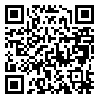BibTeX | RIS | EndNote | Medlars | ProCite | Reference Manager | RefWorks
Send citation to:
URL: http://irj.uswr.ac.ir/article-1-392-en.html

 , Asghar Dalvandi *1
, Asghar Dalvandi *1 
 , Hamid reza Khankeh1
, Hamid reza Khankeh1 
 , Abbas Tafakhori2
, Abbas Tafakhori2 
 , Payam Sarraf2
, Payam Sarraf2 
 , Roozbeh Kazemi3
, Roozbeh Kazemi3 
 , Zeinab Ebrahimpour1
, Zeinab Ebrahimpour1 
 , Akbar Biglarian1
, Akbar Biglarian1 
 , Kristin L. Mauk4
, Kristin L. Mauk4 

2- Tehran University of Medical Sciences, Tehran, Iran.
3- Stroke Rehabilitation of Tabassom, Tehran, Iran.
4- College of Nursing, Valparaiso University, Indiana, USA.
Objectives: Stroke is a major event in one's life, and patients will inevitably require the use of coping strategies in order to try to reestablish acceptable life equilibrium. Due to the extensive role that nurses can be active members in the patient's rehabilitation plan, the Mauk model is a model that focuses on stroke patients. For each stage of this model, Mauk has developed appropriate rehabilitation nursing interventions. This study aimed to analyze the effect of implementation of the Mauk nursing rehabilitation model (Agonizing phase, Fantasy phase, Realizing phase) on the coping strategies of stroke patients.
Methods: This study is a quasi-experimental one-group pre-test-post-test study. The interventions are identified and coping strategies for patients based on the Mauk model have been trained. Convenience sampling has been done in Imam Khomeini hospital and Tabassom rehabilitation center in 1392. Data collection instruments included a demographic questionnaire and a coping strategies questionnaire for stroke patients. The educational program was implemented in sessions of 45 minutes. The patients’ coping strategies, before and after training, were assessed. Data was statistically analyzed using
descriptive and inferential tests in SPSS software 16.
Results: The mean score for coping strategies before intervention was 111.42±11.71, and after intervention was 102.14±12.45 (P<0.05). The physical, mental and social dimensions in the coping strategies showed significant differences before and after intervention.
Discussion: Using the rehabilitation program interventions for effectively dealing with stress, changing and unpredictable behavior patterns in chronic patients is an important component of the treatment protocol, and helps deliver an increase in coping strategies for stroke patients.
Received: 2015/04/17 | Accepted: 2015/05/15 | Published: 2015/06/1



